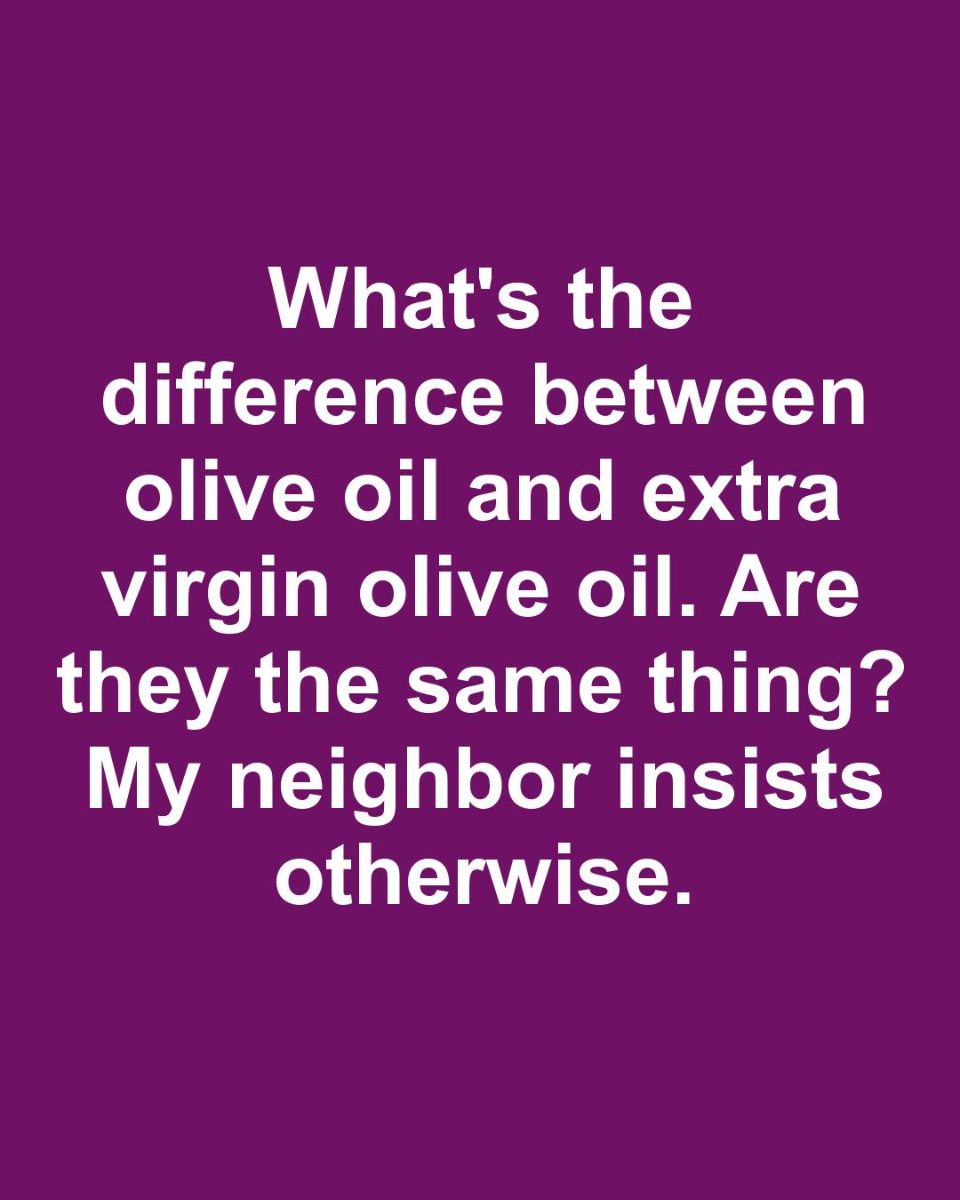Olive oil is a staple in many kitchens around the world, prized for its health benefits and versatility in cooking. However, there is often confusion about the different types of olive oil available, particularly between ‘olive oil’ and ‘extra virgin olive oil.’ While they both originate from olives, these oils differ significantly in terms of production methods, quality, flavor, and nutritional content. This article aims to clarify these differences and help you understand why your neighbor insists that they are not the same thing.
Understanding Olive Oil: Definition and Production
Olive oil is a general term that encompasses several grades of oil extracted from olives. The production process typically involves crushing olives to extract the oil, which is then refined to remove impurities and improve shelf life. The refining process often involves heat and chemical treatments, which can strip the oil of some natural flavors and nutrients. As a result, standard olive oil tends to have a more neutral taste and a lighter color compared to extra virgin varieties.
Exploring Extra Virgin Olive Oil: Definition and Production
Extra virgin olive oil (EVOO) is considered the highest quality olive oil available. It is made from pure, cold-pressed olives, without the use of heat or chemical treatments. This method preserves the oil’s natural flavors, aromas, and nutrients. To qualify as extra virgin, the oil must meet strict standards set by the International Olive Council, including low acidity and no sensory defects. EVOO is known for its robust flavor, rich aroma, and deep green color.
Key Differences Between Olive Oil and Extra Virgin Olive Oil
The primary differences between olive oil and extra virgin olive oil lie in their production processes and quality standards. While olive oil is refined and may contain a blend of refined and virgin oils, extra virgin olive oil is unrefined and must meet stringent quality criteria. These differences result in variations in flavor, aroma, and nutritional content, with EVOO generally being more flavorful and nutritious.
Nutritional Comparison of Olive Oil and Extra Virgin Olive Oil
Nutritionally, both olive oil and extra virgin olive oil are rich in monounsaturated fats, which are beneficial for heart health. However, EVOO contains higher levels of antioxidants and polyphenols due to its minimal processing. These compounds contribute to its anti-inflammatory properties and potential health benefits. While both oils are healthy choices, EVOO offers a slight nutritional edge due to its higher antioxidant content.
Flavor and Aroma: How They Differ
Next Page

